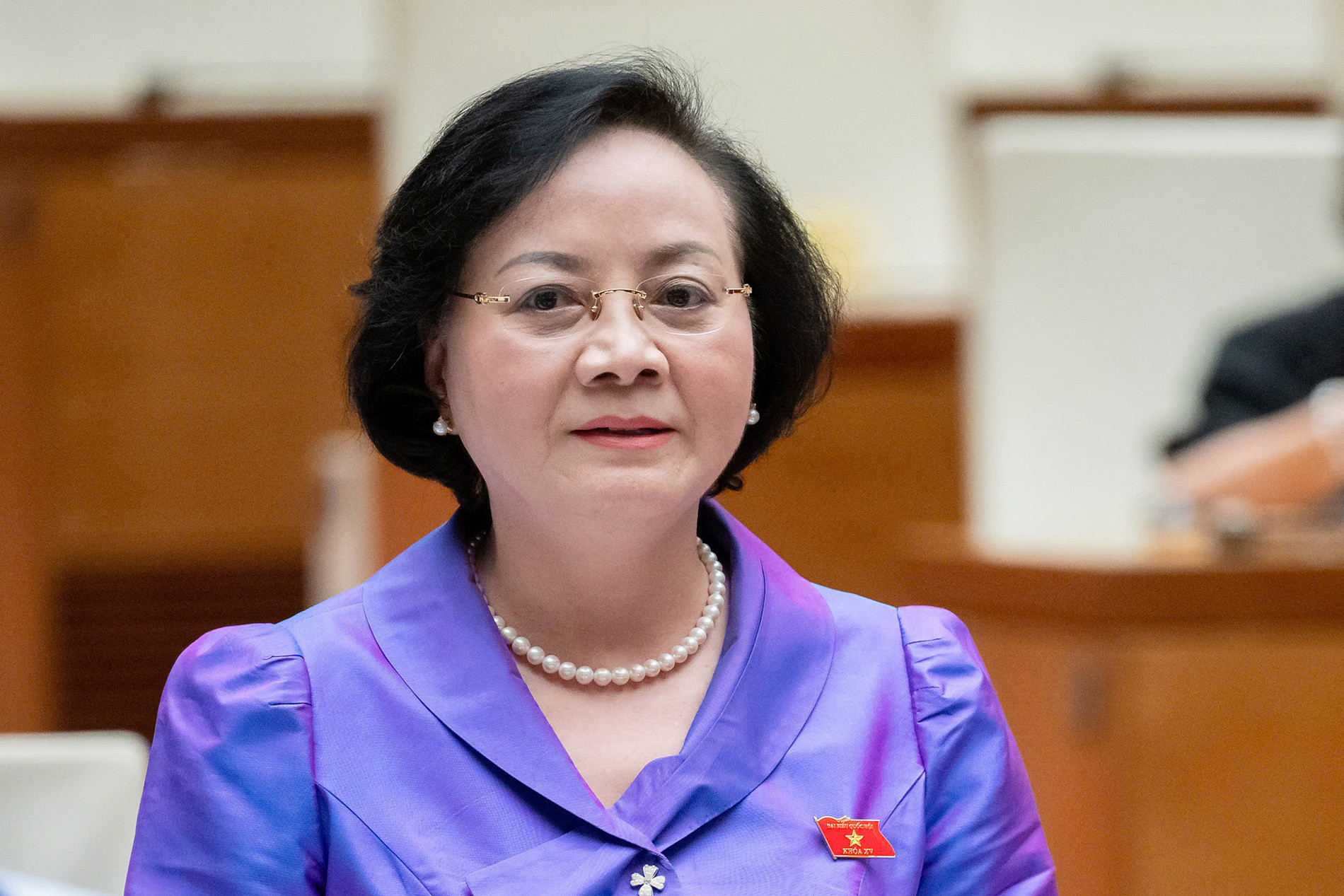
Since the beginning of this year, 139 officials and 432 civil servants have been disciplined, playing a key role in the fight against corruption, misconduct, group interests, and the moral and political decline of government personnel.
This information was presented by Minister of Home Affairs Pham Thi Thanh Tra in a report to the National Assembly on the management of officials and civil servants.
The Minister emphasized that disciplinary measures taken against violating officials and civil servants were conducted in accordance with principles of objectivity, fairness, transparency, and timeliness, following proper authority, procedures, and regulations. This has contributed significantly to the government's efforts to curb corruption and promote ethical governance.
Additionally, the government has introduced and enforced legal frameworks aimed at replacing officials with limited capabilities, those who have lost credibility, or those who evade responsibility. This initiative is part of a broader effort to enhance administrative discipline.
The reforms are intended to encourage innovation and creativity among officials and civil servants, while providing a safe and comprehensive legal framework for them to carry out their responsibilities with confidence.
The government and Prime Minister have issued numerous directives aimed at eliminating work avoidance, inefficiency, and reluctance to take responsibility. These actions aim to enhance governance and operational efficiency across all ministries and localities.
Real progress in evaluating officials and civil servants
In recent years, efforts to evaluate and classify the quality of officials and civil servants have become more substantive. The assessments are now more closely linked to actual job performance and results, aligning personal evaluations with the collective performance of agencies, departments, and localities.
These evaluations are also consistent with the Party's regulations regarding the proportion of officials and civil servants rated as "excellent" in fulfilling their duties.
According to reports from various ministries and localities, out of 254,757 civil servants assessed in 2023, 45,696 (22.88%) were rated as having "excellent" performance, 165,939 (56.68%) were rated as "good," 28,689 (18.69%) were rated as "satisfactory," and 14,733 (1.75%) did not meet performance expectations.
In 2023, 3,664 new civil servants were recruited, with 488 hired by central ministries and 3,176 by local governments. In the first half of this year, 1,688 civil servants were recruited, including 169 by central ministries and 1,519 by local governments.
These recruitment efforts have contributed to the restructuring of the civil service to meet job requirements more effectively.
Strict measures for underperforming officials and civil servants
Looking ahead, Minister Pham Thi Thanh Tra stated that the government will continue to improve the recruitment process for civil servants, standardize entry-level testing, and develop policies that attract and retain talented professionals.
Additionally, the evaluation process for officials and civil servants will continue to evolve, with a focus on actual work outcomes and results.
Of particular note is the government's commitment to addressing feedback from citizens and businesses regarding the conduct and performance of officials and civil servants. This input will be considered during performance evaluations.
Minister Tra also stressed the need to strengthen inspections, enforce administrative discipline, and enhance oversight of the civil service to improve the overall quality and effectiveness of public service.
At the same time, the government will continue to encourage and protect officials who are dynamic, creative, and willing to take responsibility for the common good.
Thu Hang